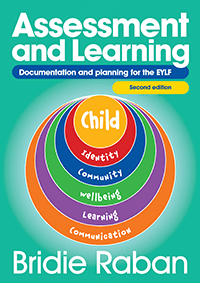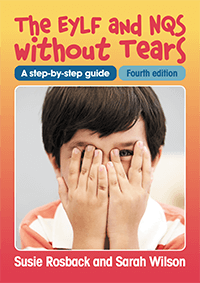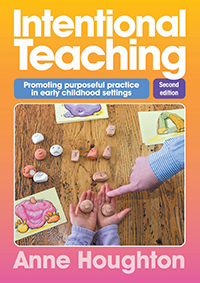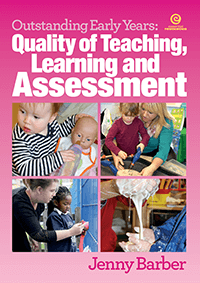Contents |
| Introduction | 4 |
| 1. Observation, assessment, documentation | 6 |
| Observation begins with listening | 6 |
| Why observations matter | 8 |
| Observation methods | 10 |
| Documentation | 17 |
| Assessment | 18 |
| Disrupting the myths | 22 |
| Reflective questions | 22 |
| 2. Theories and perspectives | 23 |
| The planning cycle informs our practice | 23 |
| Theories and perspectives within the frameworks | 26 |
| Reggio Emilia educational project | 30 |
| Projects that emphasise the child's ideas | 31 |
| Importance of philosophical values from play-based perspectives | 32 |
| play-based perspectives | 32 |
| Disrupting the myths | 32 |
| Reflective questions | 32 |
| 3. Regulations and curriculum frameworks | 33 |
| Regulatory requirements | 33 |
| The Early Years Learning Framework | 33 |
| Current policies in Australia | 34 |
| Current policies in New Zealand | 35 |
| Disrupting the myths | 36 |
| Reflective questions | 36 |
| 4. The role of the educator | 37 |
| Establishing relationships with children | 37 |
| Being a reflective educator | 38 |
| Everyday routines as rich learning opportunities for documenting | 40 |
| Planning that supports holistic learning and development for documenting | 41 |
| The role of the educational leader | 43 |
| Disrupting the myths | 44 |
| Reflective questions | 44 |
| 5. Collaborative partnerships | 45 |
| Beyond participation to partnerships | 45 |
| Engaging parents in conversation | 45 |
| Impacts of the Covid-19 pandemic | 46 |
| A transforming approach to partnerships | 47 |
| Consulting with children | 48 |
| Agreement or rules? | 52 |
| Collaborating as teams | 57 |
| Collaborating with other professionals | 58 |
| Disrupting the myths | 58 |
| Reflective questions | 58 |
| 6. Planning outside the box | 59 |
| Moving beyond templates | 59 |
| Fixed displays or living displays? | 60 |
| Disrupting the myths | 64 |
| Reflective questions | 64 |
| 7. Communicating the learning | 65 |
| Documenting with an audience in mind | 65 |
| An environment for documenting with children | 65 |
| Ethics and consent | 67 |
| Communicating the learning to parents | 67 |
| Snapshots of children's learning | 67 |
| Professionalism and documentation | 68 |
| Disrupting the myths | 70 |
| Reflective questions | 70 |
| 8. Educators as activists and researchers | 71 |
| Using an inquiry approach | 71 |
| Educators as researchers | 74 |
| Educators as activists | 75 |
| Pedagogical documentation as a risky business | 76 |
| Documenting Aboriginal and Torres Strait Islander perspectives | 76 |
| Disrupting the myths | 76 |
| Reflective questions | 76 |
| 9. Leading change | 77 |
| Pedagogical leadership and documentation | 77 |
| Effective communication | 78 |
| Reflecting on common challenges | 78 |
| Strategies for leading change with documentation | 79 |
| Disrupting the myths | 80 |
| Reflective questions | 80 |
| Conclusion | 81 |
| References and resources | 82 |
| Appendix 1: The planning cycle informs practice | 86 |
| Appendix 2: Learning story framework | 90 |
| Appendix 3: Parent questionnaire | 91 |
| Appendix 4: Parent feedback form | 92 |
| Appendix 5: All about me template | 93 |
| Appendix 6: Key words to document learning | 94 |
| Appendix 7: Emotional intelligence | 96 |




